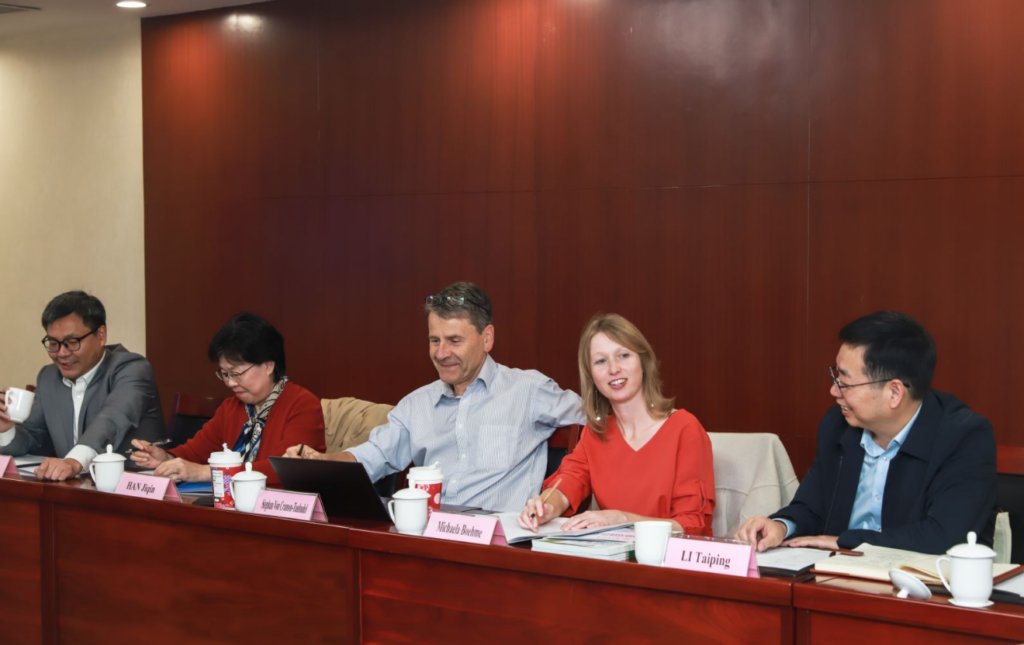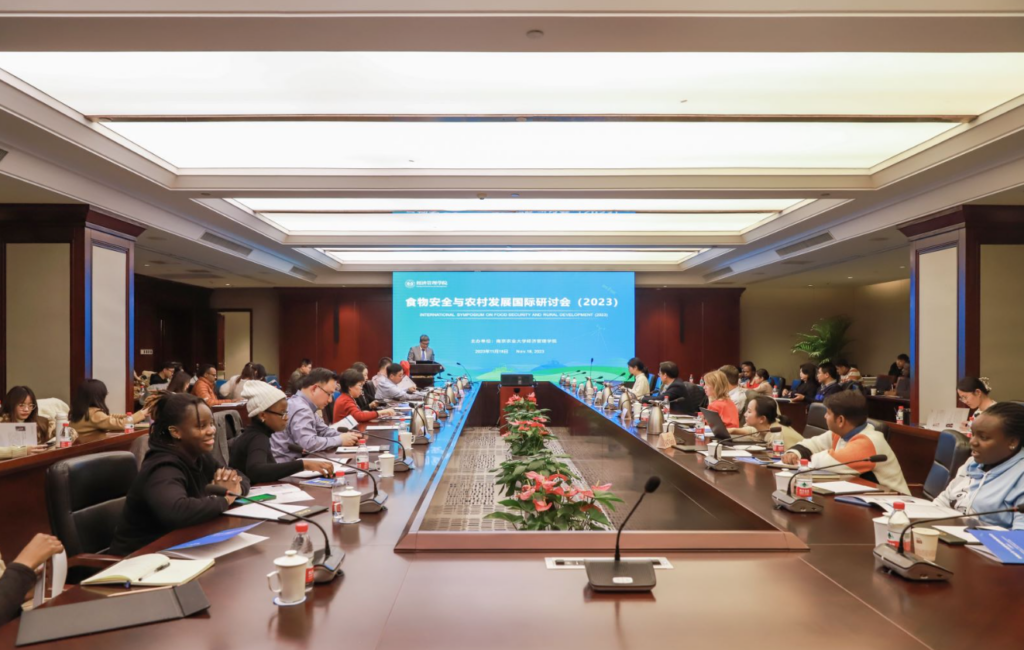On 18 November, DCZ expert Michaela Boehme participated in an international symposium on food security and rural development organized by the School of Economics and Management at Nanjing Agricultural University, where she presented the DCZ and its work on food security. The symposium brought together experts from several countries to jointly discuss strategies towards tackling the current challenges facing food security.
In his keynote address, Stephan von Cramon-Taubadel (Göttingen University) took a closer look at the EU’s Green Deal policy, dissecting its implications for agriculture within the EU and abroad. With EU Green Deal policies projected to significantly reduce agricultural production in Europe, his presentation made clear that drastic changes in consumption patterns are necessary – particularly with a view towards meat consumption – if the Green Deal is to avoid simply shifting production to non-EU countries. The presentation highlighted the need for global coordination on measuring the environmental impact of food production and to price the environmental footprint into global agricultural trade.
Will Martin (International Food Policy Research Institute, IFPRI) presented new research showing that national policies aimed at stabilizing food prices (export bans, tariffs, etc.) have added to global price volatility, while Colin Carter (University of California, Davis) shed light on the price shocks following the war in Ukraine and their implications for global food security. Kevin Chen (Zhejiang University) put the focus on nutrition, presenting a study that showed how lower tariffs on dairy products lowered the rates of stunting in children in lower- and middle-income countries.
ZHU Jing (Nanjing Agricultural University) talked about China’s evolving understanding of food security and highlighted some of the current challenges, including increasing greenhouse gas emissions, negative effects on the environment, and implications for global trade. In addition to a repositioning of agricultural subsidies, she suggested shifting the import structure from grain to meat and implementing China’s “greater food view” approach in an effort to mitigate some of these challenges.

In the afternoon, researchers from the School of Economics and Management at Nanjing Agricultural University discussed with Stephan von Cramon-Taubadel and Michaela Boehme current challenges in agricultural development and food security in both China and Germany, including structural change in farm sizes, necessary changes in subsidy structures to make agriculture more environmentally friendly, the affects of climate change on trade patterns, and China’s current drive to boost grain output.
Chaired by ZHU Jing, the productive discussions helped to exchange knowledge about the benefits and shortcomings of the agricultural policies currently implemented in both countries and identify areas for future cooperation.





